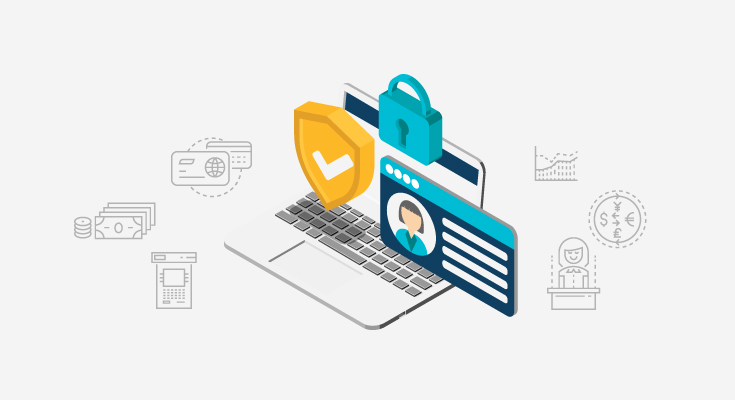Identity Verification in The Financial Services Industry

Identity verification is becoming more and more essential in the growing digital financial landscape. It has two different benefits, helps in preventing fraud and prevents fines for non-compliance with KYC and AML regulations.
The new and improved financial industry that we experience today has taken so much time and effort to happen. While the concept of finance existed since ancient times, the use of the term “financial services” became widely popular in the late 1990s.
Today, we have a completely different financial industry compared to a decade ago. Customer demands and technological advancements have changed the financial industry into a seamless experience.
Though things are more comfortable for consumers now, the risk of digital financial fraud has gone through the roof. Regulatory bodies, authorities, banks, and businesses need to take strict steps in order to maintain the integrity of the financial workflow. Technological solutions such as online document verification software, and online KYC verification software can improve financial technologies.
Problems in The Financial Services Industry
The financial industry includes banks, credit unions, insurance firms, credit card providers, and others. Digitization is helping businesses improve their overall customer experience and productivity. Fraudsters are also leveraging technologies to break into the internal systems of the financial institution.
1. Cybercrime
In 2019, 62% of all data breaches came from the financial services industry. Hacking and malware attacks for the primary source for data breaches. As of right now, fraudsters are focusing all their attention on the online financial service platform.
2. Regulations
Online investment and financial platforms such as crypto exchange, online banking, and other platforms are being used for money laundering and tax evasion. That’s why, regulatory bodies keep evolving and amending the KYC, KYB, and AML regulations. Unfortunately, most businesses fail to comply with these regulations by using ineffective technologies.
3. ID Theft
Identity theft is one of the biggest challenges faced by the financial industry. Fraudsters use various methods to steal or create fake ID to trick banks and financial institutions. One of the most common types of ID theft is fraudsters stealing credit card information and buying things without user consent. There are instances where fraudsters steal “personally identifiable information (PII)” to open new accounts and apply for credit cards and loans.
Need for ID Verification in the Financial Industry
ID verification plays a huge role in reducing the risk of financial fraud. Proper ID verification software can assist in preventing ID theft, money laundering, account takeover fraud, and other types of financial fraud. Combine ID verification with online document verification software and banks have a completely digital onboarding solution.
The ID verification solutions make sure that a customer’s ID matches the physical person. ID verification is part of the KYC verification process during customer onboarding. As KYC has become obligatory for financial institutions, the need for ID verification in the financial industry has soared.
Here are some stats to signify the importance of ID verification solutions:
- According to the FTC, around 9 million Americans report ID theft annually.
- Credit cards, loans and leases, and phone frauds are the three top types of ID theft fraud.
- The UK, Denmark, and Ireland had the highest rate of ID theft in 2018 and 2019.
- In 2018 and 2019, more than 55% of Europeans experienced at least one type of ID fraud.
How ID Verification Solutions Can Enhance the Financial Industry?
1. AML & KYC Compliance
Banks, credit unions, credit card providers, and other businesses operating in the financial industry are obligated to comply with AML & KYC regulations. To comply with ever-changing KYC and AML directives, firms have to know who they are doing business with. Robust ID verification procedures reduce the risks of businesses running into fraud, avoid huge fines and improve their brand reputation.
2. Reduce Fraud
Needless to say, the biggest use of having an ID verification procedure for your business is protection against fraud. During onboarding, banks can verify if a customer is who he/she claims to be. Moreover, ID verification improves user experience as users feel safer using your platform.
3. Minimizing Operational Costs
Manually verifying documents and cross-verifying customers with ID documents take too much time, effort, and resources. The worst part about all is that it is highly inefficient, most fraudsters tend to make documents that are too perfect to be determined as fake documents. Using online document verification software can enhance online ID verification and digital customer onboarding.












